Decision comes after daylong discussions between the civic transport body’s administration and union leaders, mediated by Chief Secretary J Saharia
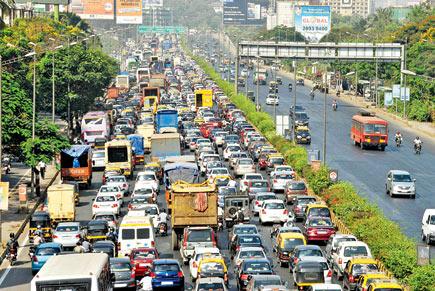
On Wednesday morning, hassle for lakhs of Mumbaikars continued as BEST drivers and conductors continued their flash strike for a second day, despite the high court directive to resume work.
ADVERTISEMENT
As the day progressed, people’s frustration mounted, but the strike was finally called of in the evening, and buses started plying around 8 pm.
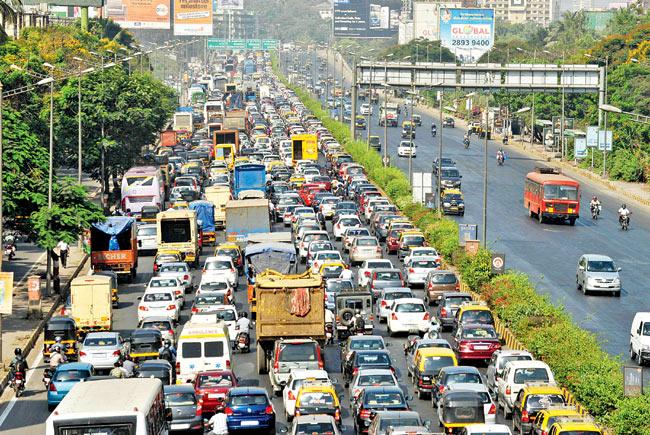
Roads packed: The Eastern Express Highway was more congested than usual, as people had to resort to taking private vehicles owing to the strike. Pic/Suresh KK
In the first half, the BEST management was busy holding discussions and hunting for solutions to end the strike. All the buses were parked in the 25 bus depots across the city. Later, the state government intervened, with Chief Secretary J Saharia brokering meetings between the transport body’s administration, headed by General Manager OP Gupta, and union leaders Sharad Rao and Sunil Ganacharya.
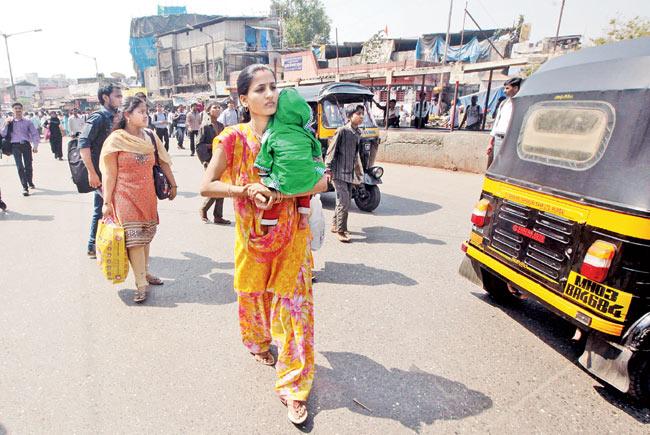 Citizens harried: Commuters had to jostle for elbowroom in private buses and vehicles in order to get to their destinations. Pics/Atul Kamble
Citizens harried: Commuters had to jostle for elbowroom in private buses and vehicles in order to get to their destinations. Pics/Atul Kamble
During this time, people were scrambling to find cabs and auto rickshaws, whose drivers, as they are wont to during such times, fleeced the passengers. The cabbies exercised their right to refuse, and select the routes they wanted to ply. Many people had to foot the distance.
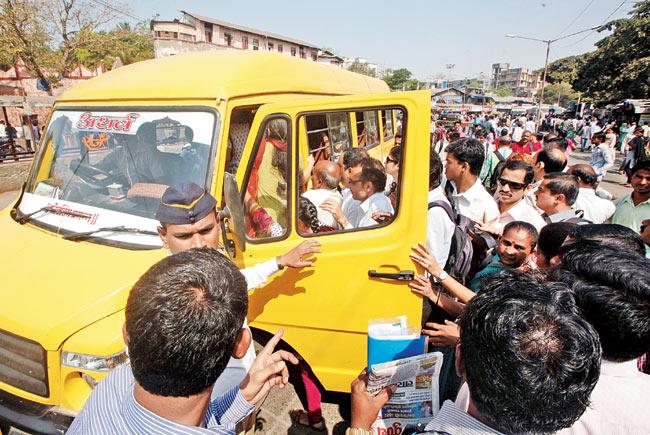
There were talks of invoking the Maharashtra Essential Services Maintenance Act (MESMA), but it wasn’t implemented as talks were underway. By 5 in the evening, after Saharia announced that the bus services would resume soon, drivers and conductors withdrew their flash strike after negotiating with the management over the implementation of the new computerised work schedule system. The buses started plying by 8 pm, and not more than 300 services were on the roads after that.
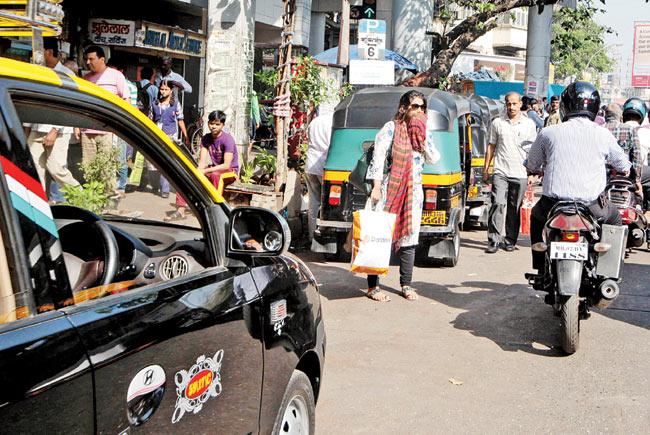
The scheduling system has been postponed till June 1, and as a pilot project the system will be implemented at the Malad depot.
Drivers and conductors, though, are opposed to the working system, which they claim increases their work hours drastically, considering their commute time to and from their residences.
 Subscribe today by clicking the link and stay updated with the latest news!" Click here!
Subscribe today by clicking the link and stay updated with the latest news!" Click here!






